Nasz wiek jest najwyższym stopniu czasem niepotrzebnego cierpienia, które nie wymaga dialektycznych wyjaśnień, ale czeka na to, by je ukoić - jeśli to możliwe - poprzez bezpośrednią i wolną od wszelkich apriorycznych założeń - pomoc. Jeżeli jednak również ta nowa odmiana filantropii, pozbawionej już teraz klapek na oczach, stwarza problem, to dlatego, że i ona nie zerwała z okrucieństwem. Raz się sparzywszy, człowiek woli zarezerwować swój humanitaryzm wyłącznie dla wielkiej tragedii. Oznacza to, że potrzeba niemało krwi, aby przełamać jego powściągliwość i zmusić do działania. Jest go w stanie poruszyć jedynie jakaś niezaprzeczalna masakra i całkowicie bierne cierpienie. Dopóki zło nie ukaże się w całej oczywistości, dopóki nie zostaną rozwiane wszelkie zastrzeżenia i wątpliwości - trzyma się na uboczu. Potem zaś ma już co innego na głowie. Nielitościwa zaiste delikatność. W ostatecznym rachunku w tej uczuciowej alienacji wobec nędzy jest tyle samo okrucieństwa co w męskiej decyzji, aby skończyć z nędzą tego świata, odwołując się do sprytnych argumentów.
Alain Finkielkraut Boeken
Alain Finkielkraut is een Franse filosoof en schrijver wiens werk kritische vragen over de moderne samenleving behandelt. Zijn essays verkennen de spanningen tussen traditie en vooruitgang, en ontrafelen de complexiteit van identiteit en cultuur in een geglobaliseerde wereld. Finkielkraut staat bekend om zijn scherpe intellectuele analyses en gepassioneerde verdediging van culturele waarden. Zijn schrijven daagt lezers uit om na te denken over de koers van onze beschaving.

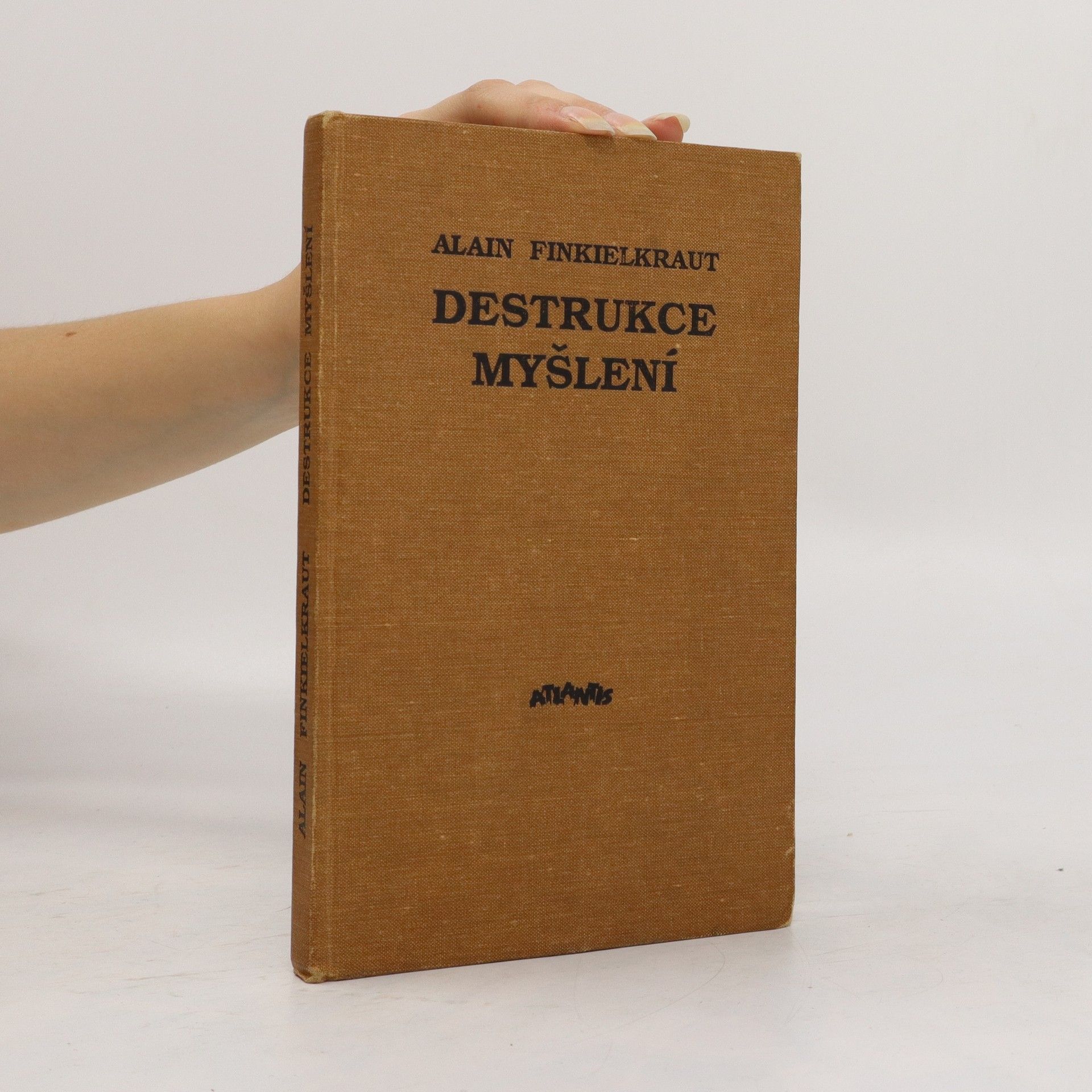
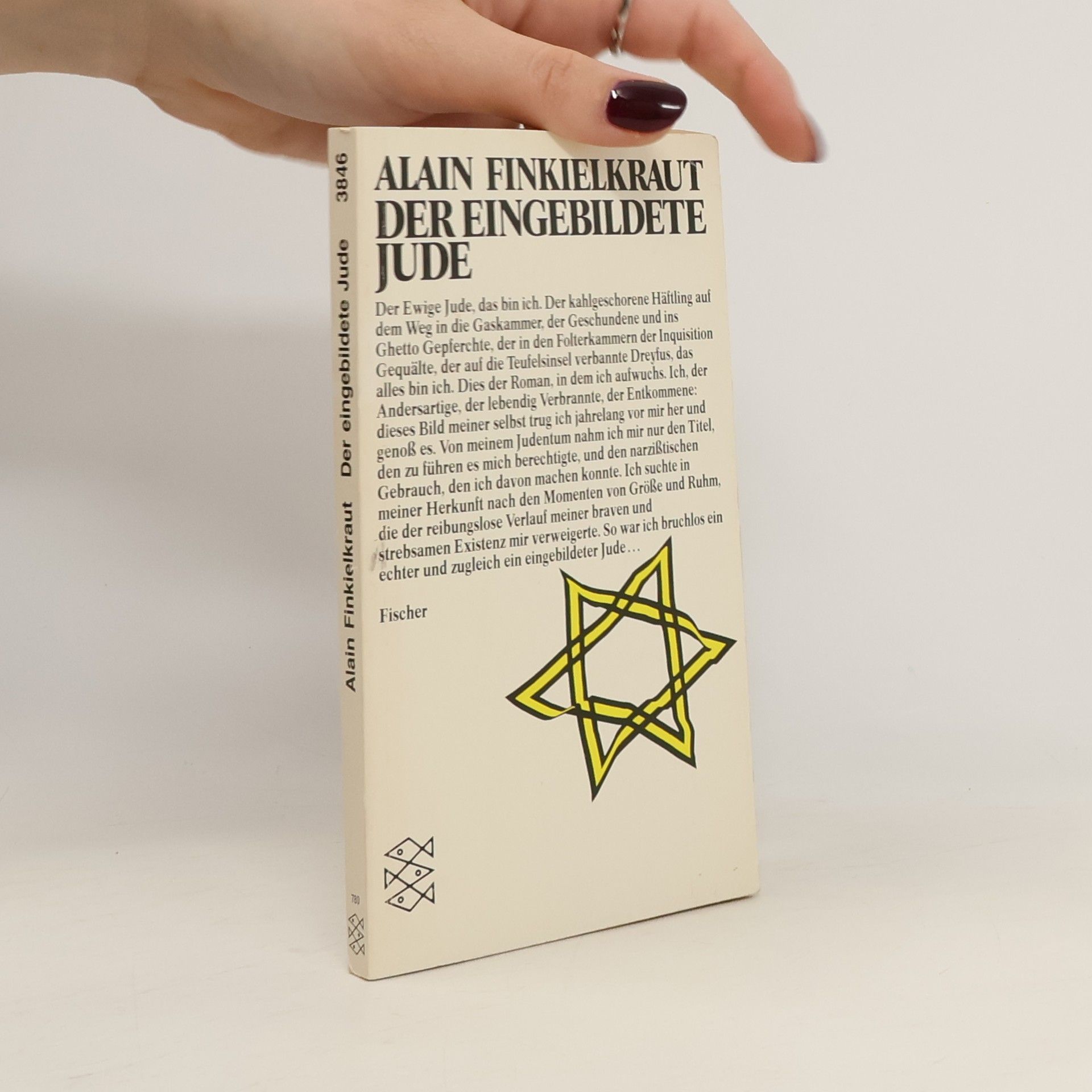
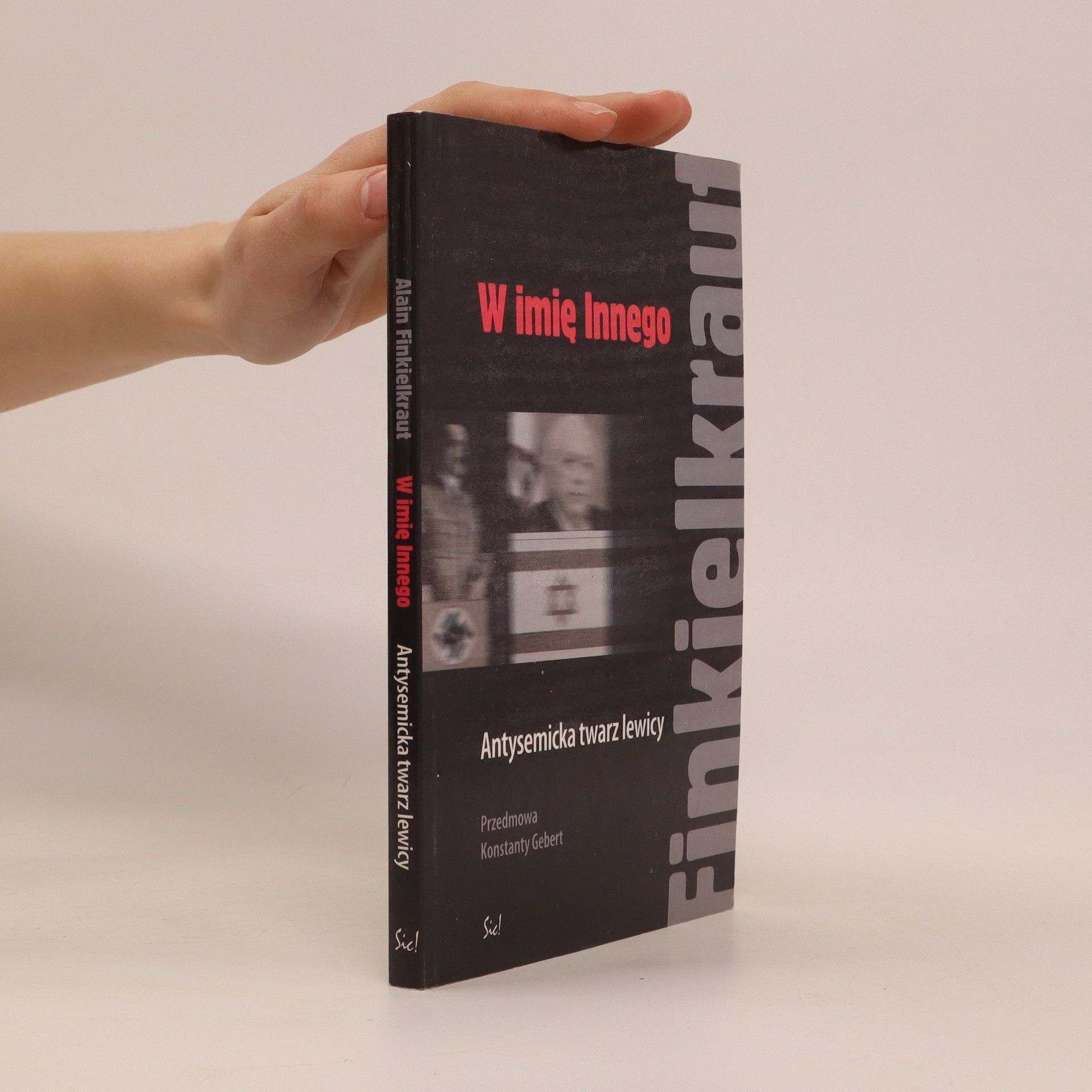
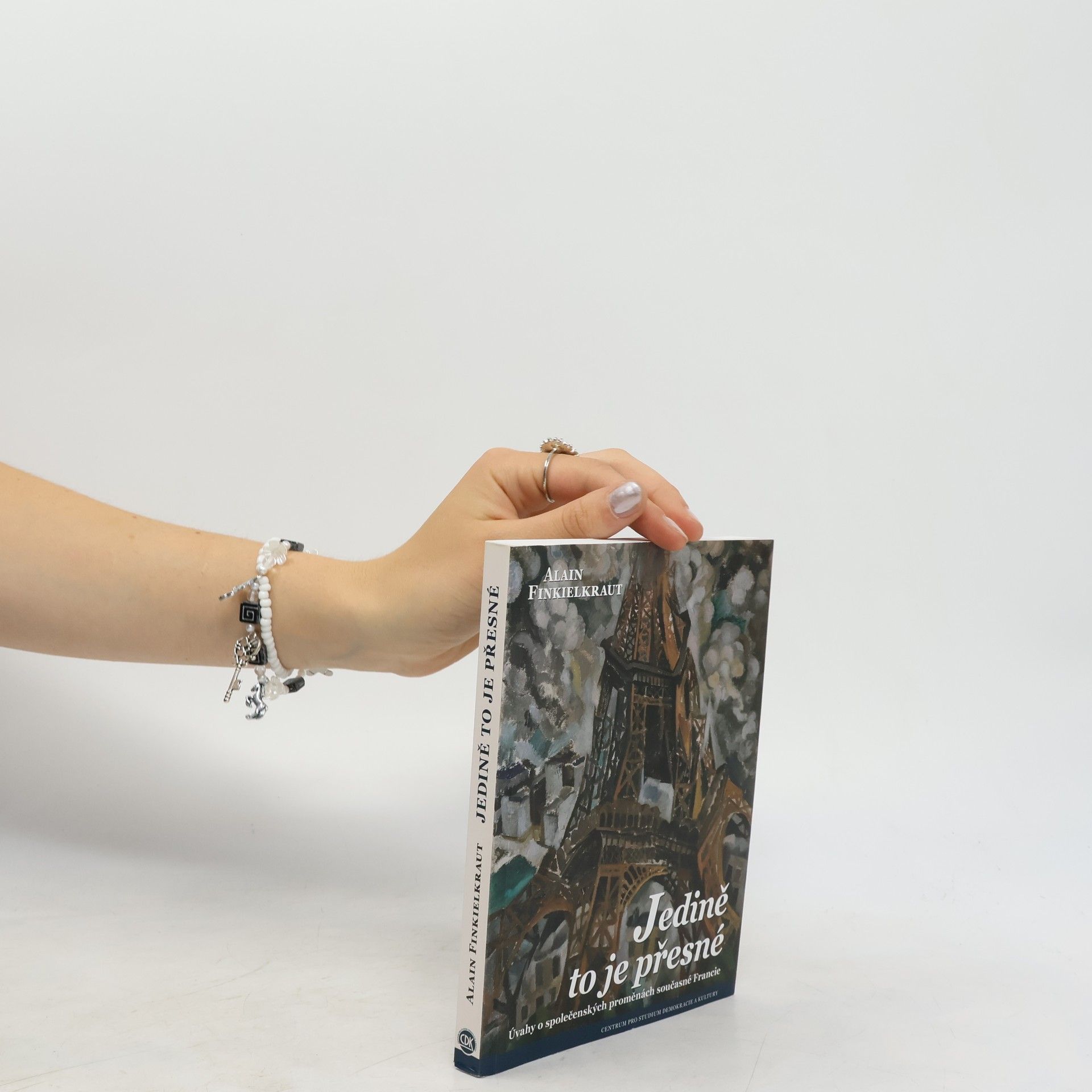
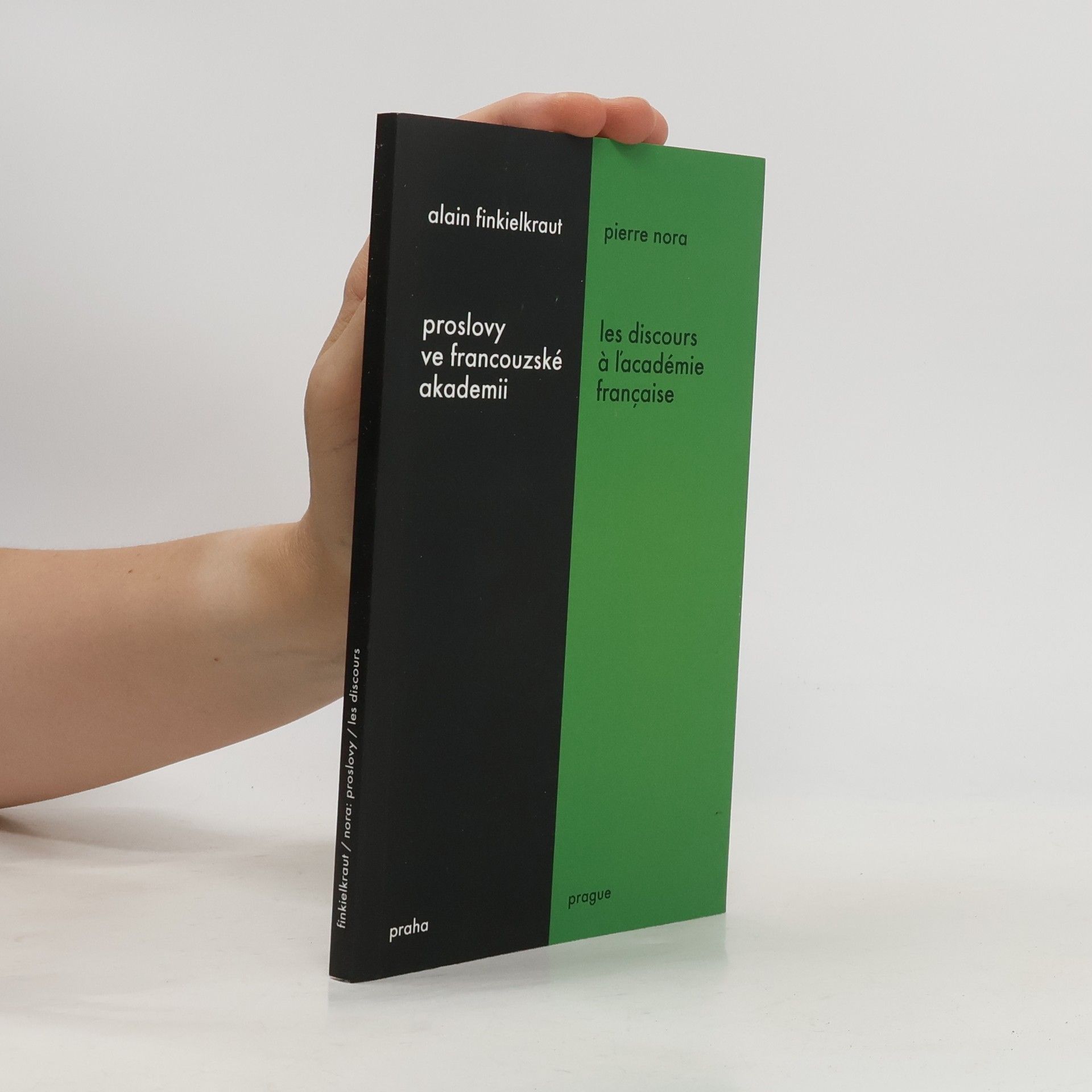
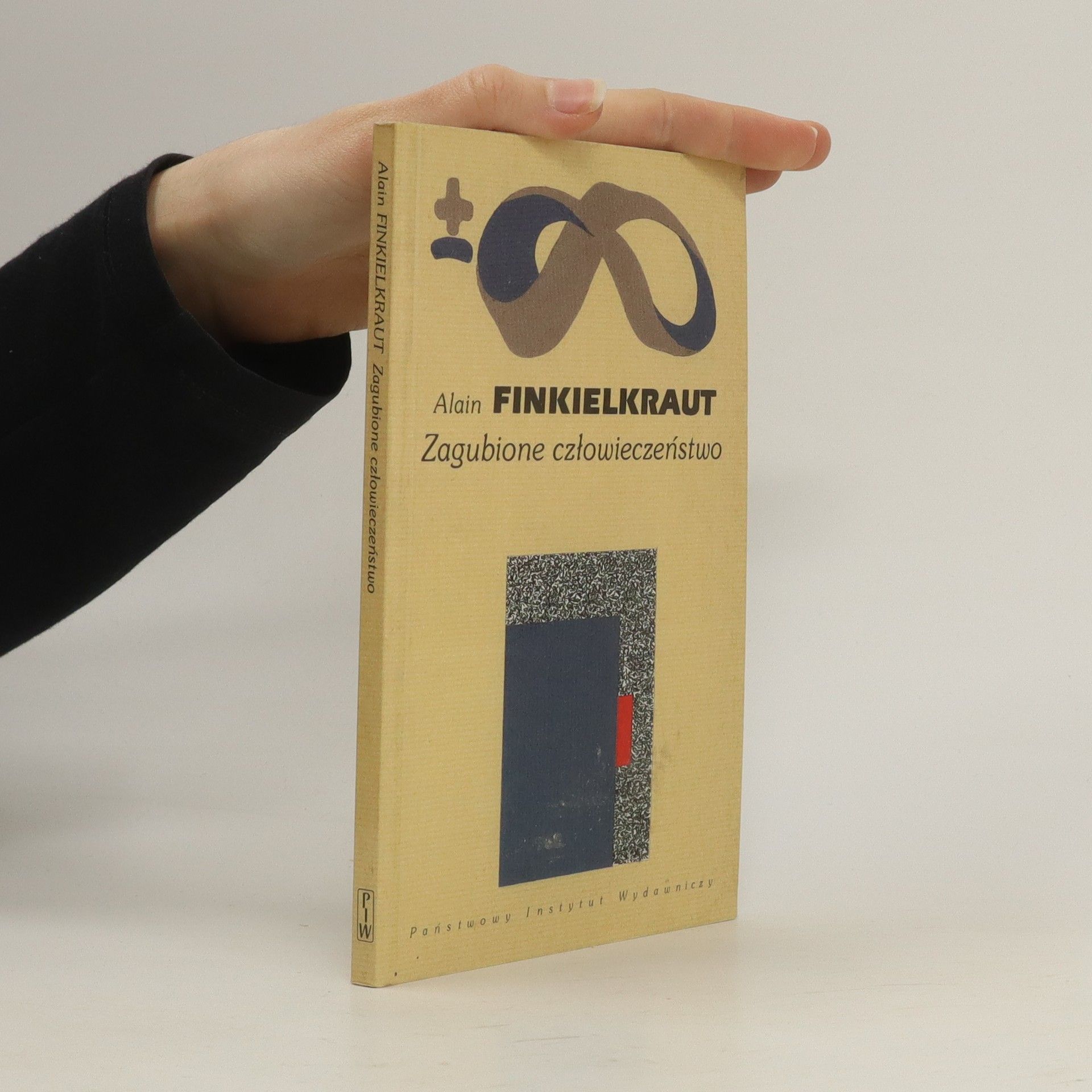
Proslovy ve francouzské akademii / Les discours a ľacadémie française
- 152bladzijden
- 6 uur lezen
Alain Finkielkraut byl zvolen do Francouzské akademie do křesla číslo 21, které se uvolnilo smrtí Féliciena Marceaua, a stal se tak 727. akademikem. Na slavnostním zasedání 28. ledna 2016 přednesl svůj první proslov, v němž poděkoval a vzdal hold svému předchůdci. Proslovy nových členů akademie mají dlouhou tradici, zaměřují se na laudatio, chválu jak nového člena, tak jeho předchůdce. Finkielkraut, esejista a filozof, v roce 2014 podal portrét Féliciena Marceaua, jehož minulost byla komplikovaná kvůli obvinění z kolaborace. Finkielkrautovo hodnocení ukazuje jeho velkorysost a kritický úsudek, zatímco Pierre Nora, historik, navázal na jeho proslov úvahami o krizi kultury a národa, což jsou otázky aktuální i v českém prostředí. Dialog mezi akademiky je jiskřivý, s humorem kontrastujícím s vážností situace. Česká kulturní veřejnost ocení výměnu názorů mezi Finkielkrautem a Norou, kteří prošli složitým názorovým vývojem. Čtenáři se seznámí s myšlenkami francouzských akademiků, kteří reflektují historii, vlastenectví, imigraci, roli médií a krizi tradiční politiky. Nad tím vším se klene vědomí, že kritické myšlení otevírá cestu k svobodě jednotlivce i společnosti.
Jedině to je přesné
- 270bladzijden
- 10 uur lezen
Úvahy o společenských proměnách současné Francie Francie, podobně jako celá Evropa, se v posledních letech mění k nepoznání. Jak máme těmto proměnám rozumět? Jak se v novém světě vyznat a co očekávat? Odpovědi na tyto otázky přicházejí ze dvou stran: poučme se z historie, říkají jedni, dívejme se na společnou budoucnost, říkají druzí. Alain Finkielkraut ukazuje, že obě strany se mýlí: historické analogie i politické vize nám totiž přítomnost zakrývají a znemožňují nám vidět její skutečnou tvář. Ve svých komentářích k francouzským událostem z let 2013–2015, které připravoval pro rádio RCJ a časopis Causeur, se pokouší o věcné a střízlivé hodnocení, které je neideologické a drží se zdravého rozumu – asi tak, jak to známe u G. K. Chestertona nebo Raymonda Arona. „Jedině to je přesné, žít v přítomném okamžiku,“ cituje autor v úvodním mottu Charlese Péguyho. A život v přítomném okamžiku pro něj znamená odložit veškeré předsudky a „podívat se zpříma do tváře, kterou jsme nečekali“.
Esej francouzského filozofa Alaina Finkielkrauta (1949) promlouvá do našich soudobých českých sporů o kulturu. Postihuje problematiku nacionalismu a etnicity i jevu, který se nazývá postmodernou. Proti pokusu o absolutizaci kultury autor hájí kritický rozum schopný rozlišovat hodnoty.
Du crime contre l'Humanité «Contre l'oubli de ce qui fut, il est toujours possible de faire appel, et de réveiller la mémoire.Contre une mémoire qui, au lieu d'acquitter notre dette envers les morts, met le passé à la disposition des vivants, leur sert de supplément d'âme, flatte leur bonne conscience, conforte leurs certitudes idéologiques, entretient l'époque dans son mélange si caractéristique de cynisme et de sentimentalité, contre une telle mémoire, il n'y a plus aucun recours.Avec le procès de Klaus Barbie, la mémoire des survivants a bien retardé le moment où les victimes du nazisme, de réelles, deviendront historiques. Mais si c'était pour les livrer à l'actualité futile ou pour redonner vigueur et légitimité à une représentation de l'Homme que récuse précisément la vertigineuse notion de crime contre l'humanité, alors à quoi bon ?La mémoire a certes triomphé de l'oubli, mais c'est une mémoire vaine.»
Co kdyby láska nikdy neskončila
- 109bladzijden
- 4 uur lezen
Ve své půvabné knížce přeložené pod názvem Co kdyby láska nikdy neskončila uvažuje Alain Finkielkraut o čtyřech podobách moderní lásky, která je sice vyvázána z tradičních svazujících pout přísné morálky a zatěžujících zvyků, přesto je spíše křehká a v ohrožení. Láska je dnes sice „volná jako ptáče“, ale je třeba se s autorem na chvíli pozastavit a ptát se, jaké podoby má dnes tato základní lidská emoce a zda vlastně ještě umíme opravdově milovat.
Ich schweige nicht
Philosophische Anmerkungen zur Zeit
Alain Finkielkraut setzt in seiner Autobiografie den Fokus auf die prägenden Etappen seines geistigen Werdegangs. Der große französische Philosoph greift Themen auf, die ihn sein Leben lang begleitet haben: die 68er-Bewegung, seine jüdische Herkunft, die Rassismus-Debatte oder den Staat Israel. Er setzt sich mit den Gedanken und Anregungen von intellektuellen Wegbegleitern wie Martin Heidegger, Milan Kundera oder Michel Foucault auseinander, philosophiert über seine europäische Identität und über deren Bedrohung durch den Multikulturalismus. So zieht der streitbare Denker nicht nur Bilanz über sich selbst und sein Werk, sondern auch über die europäische Gesellschaft an der Schwelle zu einem neuen Jahrtausend.
L'identité malheureuse
- 228bladzijden
- 8 uur lezen
Réflexions critiques sur la modernité. Dénonçant le politiquement correct, le philosophe aborde tour à tour la question de l'identité nationale, l'immigration, les atteintes à la laïcité, la crise de l'école, les modes de vie contemporains, l'évolution des moeurs.



